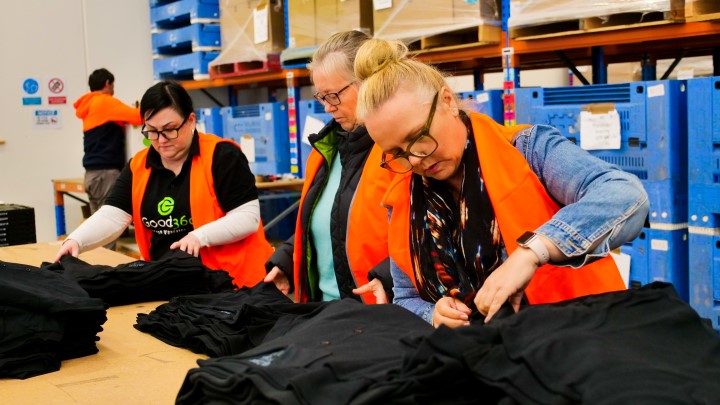The nationwide impact of the rising cost of living has hit many parts of Australia. As recent ABS data shows, customers are almost universally shifting their spending habits, signalling difficult times for businesses and customers alike. As a result, tonnes of products which would otherwise have been sold are being redirected to charities, or in other cases, landfill. Australian retail charity Good360 has seen a 20 per cent spike in donations received by retailers in the past year, f
ear, founder and managing director Alison Covington confirmed to Inside Retail, with many businesses unable to sell products that had been stocked.
“What we know is that there’s more businesses out there that are, unfortunately, seeing soft sales conditions,” Covington said.
“We’re getting five skip bins of product a day at the moment, which we can redirect to help around 3000 Australians.”
And while the current conditions are in some ways ideal for a charity such as Good360, the increased donations are making it difficult for the business to keep up. According to Covington, this isn’t an issue unique to Good360, but is being felt by the entire charity sector.
Silent crisis
In previous crises, government and private organisations have stepped up to support charitable efforts: during the 2019 bushfires, for example, people who were affected could count on Government support to help rebuild lost homes, and corporations donated en-masse to disaster relief charities to help them manage the influx of people needing assistance.
This is not the case currently, Covington explained.
“What we have now is a silent crisis, where there’s more people suffering [and] the charitable sector is having to help more people than ever before, but there’s no funding.”
As such, charities are asking for more Government support in order to give them the resources they need to help Australians stay above water.
“These people have been pushed to a place that’s quite difficult,” Covington said.
“If their house had burned down, or was flooded, there would be support. But [with] interest rates going up, the everyday person is in a tough position.”
Business not exempt
It isn’t just consumers who are struggling due to cost of living pressures, but businesses too.
Many businesses, who are expecting a bounce back from deflated trading conditions faced through the Covid-19 pandemic, invested heavily in stock, only for customers to cut back on spending.
That extra stock has, in some cases, ended up going to a charity such as Good360. In other cases, however, it has ended up in landfill.
“There are a lot of businesses that just don’t know that [organisations like us] exist,” Covington said. “Many know how to get rid of food waste, but don’t know about organisations like Good360 that can help them to get rid of other [products] .”
According to Covington, the mix of products being donated are not solely from one part of the retail sector, but cover a range of categories. Excess clothing, appliances, toiletries, toys, homewares and more are being handed to Good360 every day, showcasing the sector-wide struggle.
“People are having to make the choice as to whether they can afford to purchase [everyday items] or not,” she said.
“And, obviously, that’s bad for business, and it’s bad for those vulnerable Australians who are now going without.”
However, Covington sees Good360 as a solution to the problem. By helping businesses to get rid of excess stock, Good360 can help Australians who are struggling, while also providing businesses with a good news story.
“Businesses have a lot of really valuable resources, and we need to help them to do good and be the heroes of this story,” Covington said.
“Then, when times are better, Australians will reward them for the generosity they demonstrated during the tough times.”







